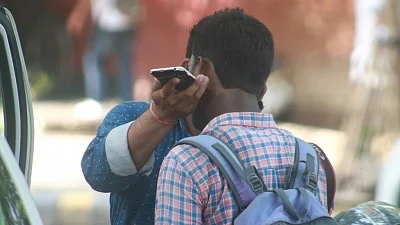This article has been authored by a member of The Quint. Our membership programme allows those who are not full-time journalists or our regular contributors to get published on The Quint under our exclusive 'Member's Opinion' section, along with many other benefits. Our membership is open and available to any reader of The Quint. Become a member today and send us your articles on membership@thequint.com.
In today's digital age, the omnipresence of mobile phones has raised significant concerns about their impact on academic performance. Although mobile phones/smartphones are essential devices that help us to stay connected with friends and family, their overuse can severely hinder students' academic performance, as they often find themselves glued to these devices during class.
The argument of using mobile phones for research purposes in academia also falls short as there are many alternatives such as desktop computers/laptops/tablets etc. which can be utilised instead of a mobile phone.
A study by Kuznekoff and Titsworth (2013) supports this view, indicating that students who use their mobile phones during lectures tend to write down less information, recall less material, and perform worse on multiple-choice tests compared to those who abstain from using their phones while preparing for such tests.
Numerous studies and reports online highlight the negative impact of mobile phones on students' academic performance which makes it a concern for many.
In my experience, constant notifications from social media and messaging apps can disrupt focus and reduce productivity. During my higher secondary exams and college final year, I chose to hand over my mobile phone to my guardians. This decision yielded positive results, allowing me to concentrate fully on my studies.
Mobile phones can be a significant distraction. Many apps are designed to keep users engaged for extended periods, making it challenging for students to concentrate on their academic work.
I've seen this firsthand, watching my sister struggle to stay focused due to her phone's constant distractions.
To conclude, a crucial message for students: Do not let mobile phones become an addiction, especially during the primary learning phases of your life. This addiction can lead to unsatisfactory exam results
Suvalagna Chandra is an Assistant General Manager of an Indian organization with 8 years of job experience and an author. She is currently pursuing her Doctorate degree from Rushford Business School. This is an opinion piece and the views expressed above are the author’s own. The Quint neither endorses nor is responsible for the same.)
(At The Quint, we are answerable only to our audience. Play an active role in shaping our journalism by becoming a member. Because the truth is worth it.)
(At The Quint, we question everything. Play an active role in shaping our journalism by becoming a member today.)
